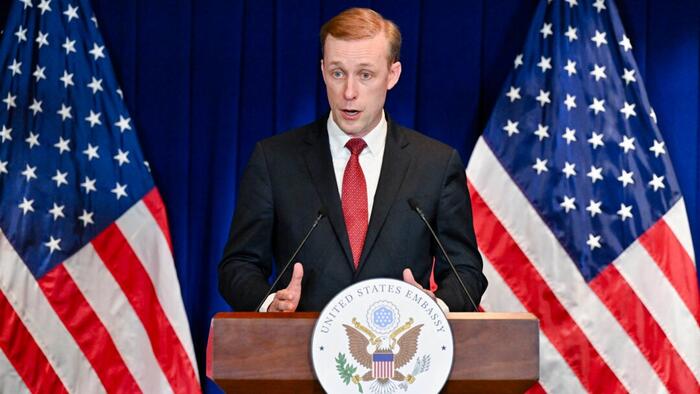National Security Adviser Jake Sullivan recently addressed the critical juncture China faces in its global positioning amidst the ongoing Russian–Ukraine conflict. As he spoke with Ian Bremmer, President of Eurasia Group and GZERO Media, Sullivan highlighted that the world is increasingly aligning into factions, notably as autocratic regimes seek solidarity in the face of geopolitical pressures. This scenario presents China with a pivotal choice: it can either deepen its ties with autocratic leaders, potentially adopting a more adversarial stance towards the West, or pursue a path of healthy competition with the United States. This decision will greatly influence China’s international image and its standing as the world’s second-largest economy. Sullivan underscored the importance of this choice, asserting that taking a darker path could render China’s future precarious.
The conversation also delved into current dynamics involving Russia’s search for support due to widespread international sanctions that curtail its access to essential resources for the ongoing conflict. In this context, new partnerships have formed, particularly an official agreement with North Korea, indicating a shift towards collaboration among nations facing similar pressures. Sullivan noted that China and Iran are also aiding Russia in evading sanctions, further solidifying what he described as the “alignment of autocracies.” As these developments unfold, experts categorize the quartet of Russia, North Korea, China, and Iran as a new “axis,” which underscores the growing polarization in global politics. However, Sullivan emphasized that the situation remains fluid, and China’s strategic decisions will significantly shape the United States’ policy responses.
Despite speculation about a potentially antagonistic future between the U.S. and China, Sullivan pointed out that both nations must find a way to coexist as dominant global powers. This necessity is underscored by the anticipated rise in tensions, particularly with the impending Trump administration hinting at aggressive trade measures against China. He highlighted the consistent pattern of both the Biden and Trump administrations imposing sanctions on China, arguing that these actions stem from a response to China’s own conduct concerning trade and human rights. Sullivan refuted the notion that the U.S. acts as an aggressor, asserting instead that the responsibility largely lies with China to decide its trajectory going forward.
The prevailing question revolves around whether China’s leadership, particularly that of President Xi Jinping, will prioritize its relationship with Russia over defining itself as an independent and unique global actor. Sullivan expressed skepticism that China has fully resolved this dilemma, suggesting that there is a genuine risk it may align more closely with Russia and its other autocratic partners. He articulated a vision for the global community, asserting that it should hold China accountable for its choices. He articulated that there remains a pathway for China to carve out a distinct role that does not necessarily align it with the so-called axis of autocracies.
In discussing the advisory landscape on national security, Sullivan revealed his consultations with incoming national security adviser Mike Waltz. This dialogue underscores the importance of foreign policy continuity across administrations, recognizing the pressing nature of these geopolitical issues. Sullivan classified prevailing interpretations of U.S.–China relations into two opposing schools of thought: one advocating for competitive engagement and the other for a more confrontational approach aimed at curbing the influence of the Chinese Communist Party. This divergence indicates the complexity of navigating U.S. strategies in response to China’s actions.
Ultimately, Sullivan conveyed a sense of realism regarding the future of U.S.–China relations. He acknowledged that regardless of how the situation evolves, both nations must learn to coexist amid their competitive dynamics. He stressed the urgency of establishing terms upon which the two global powers can engage, as their decisions impact not just bilateral relations but also broader international stability and peace. Sullivan’s commentary presents a multifaceted view of the geopolitical landscape, urging a reevaluation of strategies while emphasizing the responsibility that falls upon China during this defining moment.

